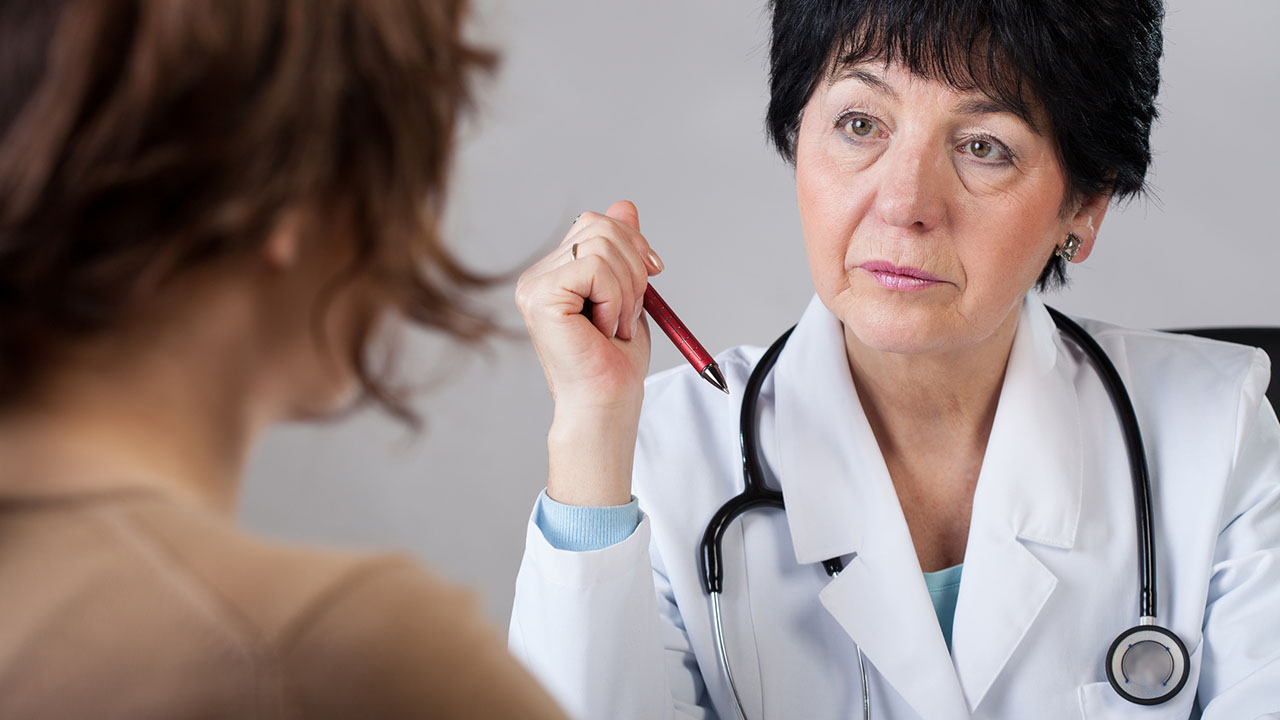 Photographee.eu/fotolia
Photographee.eu/fotolia
Question: I’m 46 and about to have a hysterectomy and my ovaries removed. I’m wondering if I should take estrogen once I’ve had the surgery.
Response: When your ovaries are removed (oophorectomy), you no longer have the hormones they supply – most importantly, estrogen. Estrogen has functions in tissues throughout your body, and its absence can lead, over time, to diseases such as osteoporosis and atherosclerosis (heart disease). The loss of estrogen after oophorectomy almost always triggers frequent and severe hot flashes and associated symptoms including depression, sleep disturbance, and fatigue.
Fortunately, estrogen is available in a variety of forms approved by the Food and Drug Administration (FDA). Since you will no longer have a uterus, you can take estrogen only and do not need to take a second hormone called a progestogen. Progestogens are added to some hormone treatments to prevent overstimulation of the lining of the uterus.
Between the 1960s and the early 2000s estrogen was routinely prescribed after hysterectomy with or without oophorectomy. More than 90 percent of women used estrogen to control hot flashes. Eventually, it became clear that there were other important health benefits of estrogen therapy (ET), including prevention of osteoporosis and fractures, as well as atrophy of urogenital tissues. There was also evidence for estrogen preventing skin aging, atherosclerosis, and Alzheimer’s disease.
The Women’s Health Initiative Study (WHI) was designed and carried out to study whether or not estrogen would decrease the risk of having a heart attack. Since 2004, numerous publications of the WHI findings for women with no uterus indicate that ET in young women such as yourself (who start ET within 10 years of hysterectomy and/or before age 60) have an almost 40 percent reduction in the risk of developing cardiovascular disease and a reduction in mortality due to heart attacks. The WHI findings also confirmed earlier studies showing that ET reduced the risk of developing colon and breast cancer in all of the women regardless of age.
Why would any woman under age 60 and/or within 10 years of her hysterectomy NOT use ET? The only downside in these women (including you) is a very small risk of a deep vein thrombosis. Even this risk can be minimized by using non-oral ET preparations such as a skin patch, gel or vaginal cream.
You and your doctor should discuss if there is anything in your medical history to suggest you should not take estrogen. Some examples include a previous deep vein thrombosis or possibly endometriosis. Many doctors will not prescribe estrogen for smokers because of their increased risk of blood clots although risks for smokers decrease when non-oral estrogen is used.
Women with a family history of breast cancer often carry genes that increase their risk of breast cancer. These women may be able to take ET and not increase their risk of breast cancer. If you have had breast cancer, your gynecologist and oncologist should discuss the best therapy for you. Within the last 10 years, it has become clearer that women who have completed treatment for breast cancer with tamoxifen or an aromatase inhibitor show a longer, cancer-free survival when they subsequently take estrogen.
Reviewed February 24, 2016
by Michele Blacksberg RN
Smith, Yolanda. Oophorectomy Risks. News Medical. March 30, 2015. Retrieved February 20, 2016. http://www.news-medical.net/health/Oophorectomy-Risks.aspx
Chubaty A, Shandro MT, Schuurmans N, Yuksel N. Practice patterns with hormone therapy after surgical menopause. Maturities. 2011;69(1):69-73. http://www.ncbi.nlm.nih.gov/pubmed/21396791
LaCroix AZ, Chlebowski RT, Manson JE, et al. Health outcomes after stopping conjugated equine estrogen in postmenopausal women with prior hysterectomy : a randomized clinical trial. JAMA 2011;305(13):1305-1314. http://www.ncbi.nlm.nih.gov/pubmed/21467283
Goodman, Brenda. Estrogen After Hysterectomy lowers cancer risk? WebMD. March 6, 2012. Retrieved February 20, 2016. http://www.webmd.com/breast-cancer/news/20120306/estrogen-after-hysterectomy-lowers-cancer-risk
Anderson GL, Chlebowski RT, et al. Conjugated equine estrogen and breast cancer incidence and mortality in postmenopausal women with hysterectomy: extended follow-up of the Women’s Health Initiative randomized placebo-controlled trial. Lancet Oncol. 2012;13(5): 476-486. http://www.thelancet.com/journals/lanonc/article/PIIS1470-2045(12)70075-X/abstract




